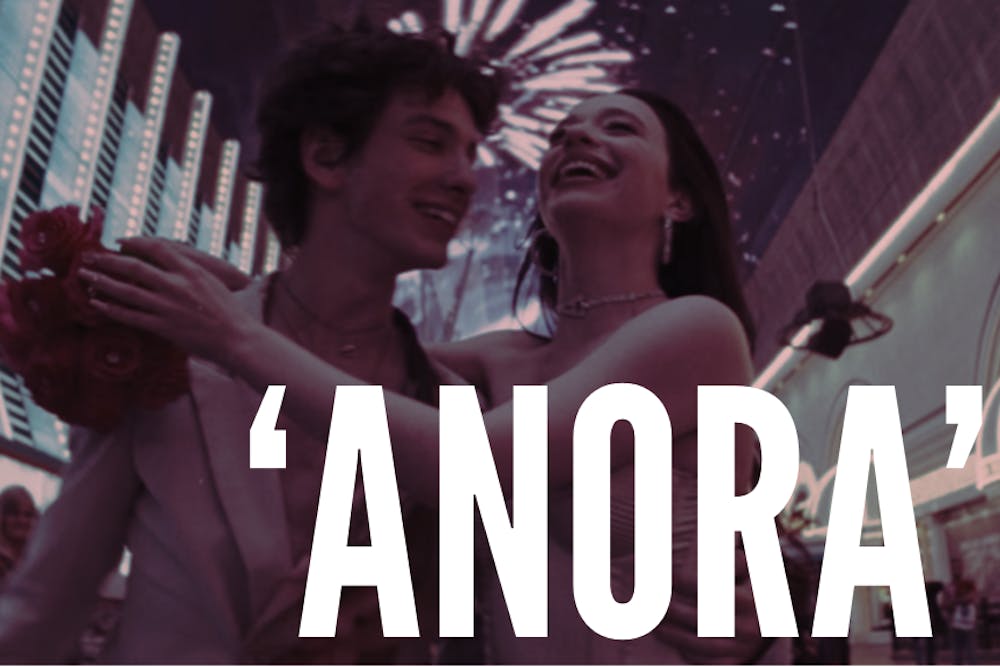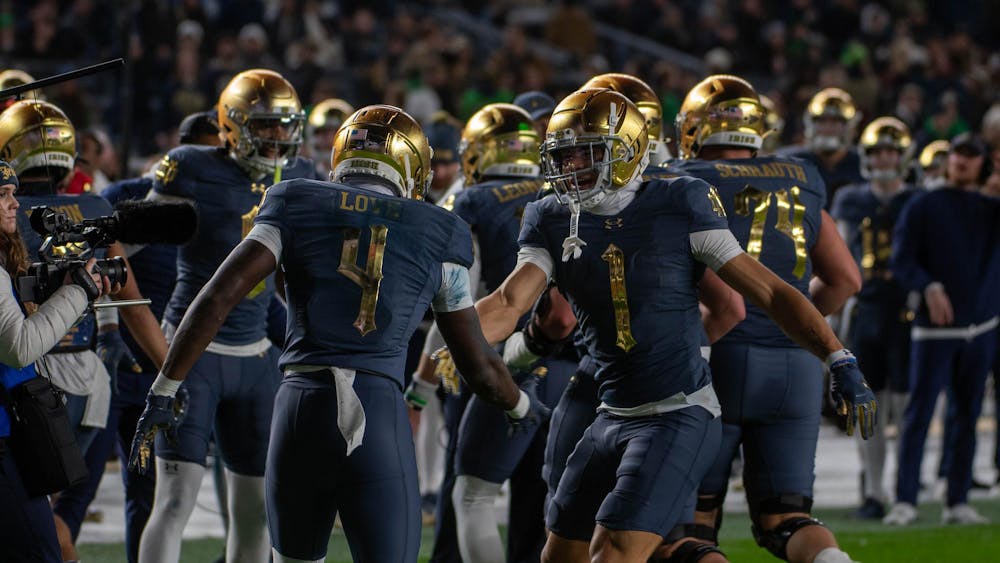Each year, I look forward to the Cannes Film Festival to see what new films I should get hyped about. Sometimes, the films that dazzle critics turn out to be baffling duds. But other times, the critics are right on the money and hurl praise at a true gem. A critical darling that emerged from Cannes this year was director Sean Baker’s “Anora,” which won the highest prize, the Palme d'Or. Since then, I’ve been eagerly awaiting its wide release. And it seems like I was the only person in South Bend who felt this way because I saw it in an empty theater this past weekend. Well, it's the people of South Bend’s loss, not mine; “Anora” is a hilarious, sweet and tragic tale of love and all the forces that work against it.
The film begins by showing us the daily life of its titular character, Anora (who prefers to go by Ani), a New York stripper. Ani is wonderfully brought to life by Mikey Madison, who injects the character with fiery energy and moving empathy. She’s an assured and shrewd woman who tirelessly fights for what she wants. Ani’s nocturnal sex work is full of ingratiating horny and lonely men, private room lap dances and catty insults with her coworkers. Baker is not interested in passing moral judgment about her sex work, choosing to depict it as hard work Ani performs dutifully. But her entire life quickly turns upside down when she meets Vanya (Mark Eidelstein), the young son of a billionaire Russian oligarch. Vanya is a hilarious contrast to Ani; he’s an immature and silly kid who treats the world like a candy store.
Vanya quickly becomes enamored by Ani, and as he solicits her services more and more, their relationship transcends transactional and becomes romantic. Here, the film assumes the style of a cheerful love story as Ani and Vanya become swept up in their free-wheeling romance. Ani is entranced by his luxurious life, not because she’s materialistic but because of the freedom it provides her. The romance offers her an escape from her working-class toil. Their whirlwind romance eventually escalates to a Las Vegas trip full of debauchery and an impulsive marriage in a wedding chapel.
When news of their marriage reaches Vanya’s parents, they become irate and activate their multinational network of goons to annul their marriage. This is where some of the film’s funniest moments come about, as the physical comedy of these bumbling Russian goons trying to subdue and control the belligerent Ani is hilarious. At this point, the film gradually shifts its focus to one of the goons, Igor (Yura Borisov), and his evolving relationship with Ani, which is utterly captivating to witness. Borisov is doing some really subtle but powerful work with the character. Despite all this, the middle act of the movie is slightly drawn out and needlessly delays the film’s devastating final act. The last five minutes are among the most impactful film endings I’ve ever seen. It’s simultaneously cathartic, tender, haunting and hopeful. It’s one of those rare film endings that elevates everything that came before it.
The film’s story deftly captures the entire emotional spectrum throughout its runtime, but its overarching story is a tragic take on the Cinderella story that profoundly illustrates class struggle. The insults Vanya’s parents constantly hurled at Ani are brutal and reveal how enraged they are that a sex worker tried to join their social class. When they chastise Vanya for the marriage, he instantly surrenders to them because losing his parents’ money would be more upsetting than losing Ani; loyalty to class triumphs over love. And just as a maid crew cleans up after all the ragers at his mansion, Vanya can easily walk away from their romance and resume his luxurious life as if nothing happened. But Ani and fellow working-class Igor are left dehumanized and picking up the broken pieces of the rich's recklessness.
Much praise should also be given to the film’s formal elements. The hand-held shooting is magnificent, always capturing the scenes with flair and clarity. The cinematography is equally great, glamorously accentuating all the vibrant interiors of strip clubs and Vegas. The film also frequently employs many montages to escalate the romance, and they all sweep you off your feet with their kinetic editing. I don’t see a lot of this idiosyncratic story working in a lesser director’s hands, but Baker is able to bring it all together effortlessly.
With “Anora,” Baker has crafted a riveting film that allows Madison to shine as a resolute woman striving to carve out her place in a world stacked against her. It is also one of the most deeply human films I’ve seen, capturing all the joy, humor, love and sadness that life entails. It really deserved better than an empty showtime.










